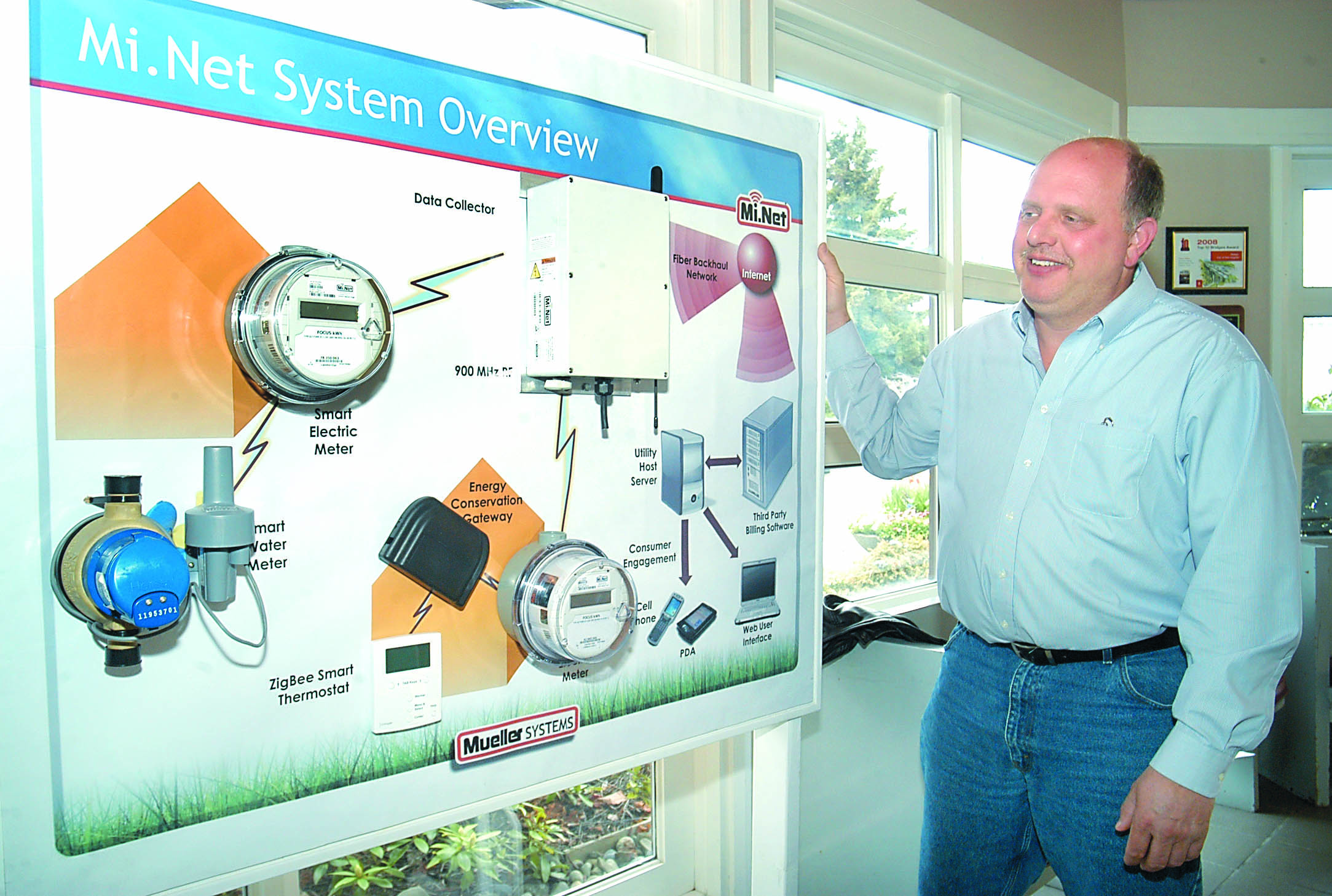PORT ANGELES — City residents could save at least $10 a month, officials say, on their utility bills next year under a slowly emerging “smart meter” program, which will affect every electricity customer in the city.
And if they shift when they use electricity, they could save even more, city officials said.
The voluntary $10 credit program will allow the city to remotely shut off power to customers’ water heaters and reduce home heating systems by one to three degrees for up to three hours a day during peak power usage — Mondays through Saturdays, from 6 a.m. to 2 p.m.
It’s a feature of a far-reaching time-of-use electric rate ordinance approved 6-1 by the City Council last week that city officials said establishes rates that more closely mirror the power costs that the Bonneville Power Administration charges the city.
City Council member Max Mania voted against the ordinance after expressing concerns over its impact on renters.
The City Council will discuss low-income utility discounts — which council member Sissi Bruch raised as an issue — at its monthly work session at 5 p.m. today in the City Council chambers at City Hall, 321 E. Fifth St.
The rates established in the ordinance are “cost-neutral to the average customer,” city Power Resources Manager Phil Lusk said Monday.
The $10 credit will be applied to customers’ bills if customers allow both a load-control switch to be installed on a water heater and a “smart” thermostat to be installed on a heat pump or furnace, or if they allow just one of the devices to be installed.
Customers with baseboard heating are ineligible because it’s not cost-effective to install multiple thermostats within a single home, city officials said.
BPA, the federal electricity wholesaler, charges the city according to times of peak, medium and low electricity usage.
Medium power periods are 2 p.m. to 10 p.m., and low power periods are 10 p.m. to 6 a.m., Dunbar said.
All day Sunday is a low-power period.
But Lusk said the city expects to interrupt power mainly between the highest usage times: between 7 a.m. and 10 a.m.
The average electric bill is $100, so the credit will save the average customer 10 percent, Dunbar noted.
“Is it enough for the average customer to do these things? It will be the cost-conscious customers who will do it.”
The typical amount of shutoff time probably will be for an hour, between 7 a.m. and 8 a.m., Dunbar said.
If they shift when they are able to use electricity from the peak to the other two periods, they will save money, Lusk said.
“How much is up to them,” Lusk said.
The City Council approved the rate ordinance in conjunction with the ongoing installation of new water-heater and electricity smart meters to utility users as part of the city’s $5.4 million advanced metering infrastructure project.
The meters will report water and energy use remotely on an hourly basis from City Hall through wireless devices and fiber-optic cables.
The information generated by the meter and transmitted to the city will include the meter number and location and does not disclose customers’ names, Dunbar said.
It will be encrypted and transmitted over a proprietary wireless network that will feed the information into the city’s database.
“It won’t know if someone is brushing their teeth or making coffee,” Dunbar said.
“It doesn’t know how you did it, and the city doesn’t care. There’s no surveillance, no cameras [and] no sharing of the information outside the city with some third party.”
When the project is completed in early 2013, customers will be able to track their electricity use through the day.
About 2,000 of the meters have been installed around I Street in west Port Angeles in the first phase of the project, with about 14,000 to go.
The city has 8,000 power customers who will get the meters as the equipment are installed from the west side of the city to the eastern city limit.
Customers will first receive a letter a few months in advance that notifies them of the installation.
That will be followed by “door hangers” that will be left at residences notifying customers that installation will occur within 72 hours, Dunbar said.
Another door hanger will be placed at the residence after the meters are installed.
When the project is completed, the time-of-use rate ordinance will go into effect.
About four city meter readers will lose their jobs as a result of the program, Dunbar said.
The city anticipates saving $200,000 to $250,000 by increasing the efficiency of the metering system and by eliminating theft, bad debt and the meter-reader positions.
The meter readers were notified their positions would be cut more than a year ago, Lusk said.
________
Senior Staff Writer Paul Gottlieb can be reached at 360-452-2345, ext. 5060, or at paul.gottlieb@peninsuladailynews.com.

